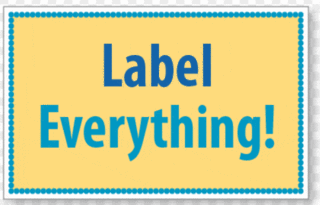The Goldlist Method
Remember 1000s of Words
With NO Memorization
- What it is
- How it works
- How to do it
- All the resources you will need
- My own personal experience
By
Robert Farmilo
Robert Farmilo
The Goldlist Method for Deep Learning English ---> What is it?
There are English expressions, phrases, and words you want to learn...that you want to remember. You need this stuff to be stored in your long-term memory.
This method will do this for you.
Your long-term memory works under the surface in your subconscious...and it works best when you don't know it is going on.
The Goldlist Method is going to do this for you with some consistent and regular application of this method.
How it Works:
You write down in one notebook lists of words, phrases, and expressions that you want to stuff into your long-term memory.
Now comes the super-weird part: You wait two weeks (or longer) and come back to the list and test yourself to see what you remember from the list you made.
Believe it or not, you will discover that you will remember about 30% of the list...without having studied the list for two weeks or longer.
How to Do It:
VIDEO: GOLDLIST METHOD EXPLAINED
You need a notebook. I recommend you use a notebook with at least 25 lines on each page. Make sure it is a notebook you can easily write in.
Select pens that you like to use. You can use different colors for the different parts of the list you will be creating. You don't have to use different colors. I suggest you experiment and find the colors that you like best.
In my case, I am happy to have a pen that works. You see, in my home, it is almost impossible to keep the pen borrowers from finding and "borrowing" one of my pens.
Here is an example of how to set up your notebook:
Take Breaks
Do not do more than 20-minutes at any one time when you add words and such to your list. Take at least a ten-minute break between each list you work on. This is to keep your long-term memory working properly. Don't try and do more. It won't work.
Important Note
Once you have been doing this regularly for 15 days in a row, you will have at least one list to begin distilling words and such into your first "distillation" also known as "D1".
When another 15 days go by, you can begin to do your second distillation, known as "D2". This D2 list is derived from your D1 list.
After another 15 days, it is time to begin your third distillation of words and such from your D2 list. This third list is known as D3.
It can seem a bit confusing when you read about it. But once you go over the "how-to" part a few times, it is easy to do.
What makes it all worth the effort and time are the results. You see, you are bending your long-term memory to serve you. And this Goldlist Method is another version of spaced repetition.
Spaced repetition is the way we mostly learn anything at all. The trick is to incorporate your long-term memory into how you learn...get that long-term memory chugging away right from the get-go.
That is why it is crucial for you to take ten-minute (or longer) breaks between working on any one of your various lists...and not to work longer than 20 minutes on any one of your lists.
Where to Find the Content?
If you have already been studying your language of choice, you will find all kinds of raw content in previous course books and notebooks.
Plus, you will find stuff to learn in all the usual suspect sources, including news articles, word lists, phrase lists, TV shows, subtitles of movies and series...any specialized vocabulary lists you need to master. Do you get the idea?
Here are some lists you can plunder:
1000 Most Common English Phrases:
Legal Lingo:
https://www.plainenglish.co.uk/files/legalguide.pdf
2265 Most Frequently Used English Words List
2265 Most Frequently Used English Words List
Includes many examples of how to use each word.
4000 Most Commonly Used Words:
https://www.worldclasslearning.com/english/4000-most-common-english-words.html
LEARN GROUPS OF WORD FAMILIES:
LEARN GROUPS OF WORD FAMILIES:
Most Common Word Families?
What is the word family?
WHAT IS THE WORD FAMILY?
https://www.twinkl.com/teaching-wiki/word-family
LIST OF MOST COMMON WORD FAMILIES:
https://www.enchantedlearning.com/rhymes/wordfamilies/
https://www.twinkl.com/teaching-wiki/word-family
LIST OF MOST COMMON WORD FAMILIES:
https://www.enchantedlearning.com/rhymes/wordfamilies/
-----------------------------------------------------------------------------------
The ULTIMATE explanation of the Goldlist method to learn vocabulary without memorizing!
 |
| ---> Click Here |
LINKS TO MORE ABOUT THE GOLDLIST METHOD:
https://www.open.edu/openlearn/languages/learning-languages/the-goldlist-method https://howtogetfluent.com/gold-list-method/ https://www.languagementoring.com/goldlist-method-how-to-learn-vocabulary/ https://www.youtube.com/watch?v=GHKy2nK1oLM -----------------------------------------------------------------------------------
|
If you would like this free e-book
---> Click Here

















































